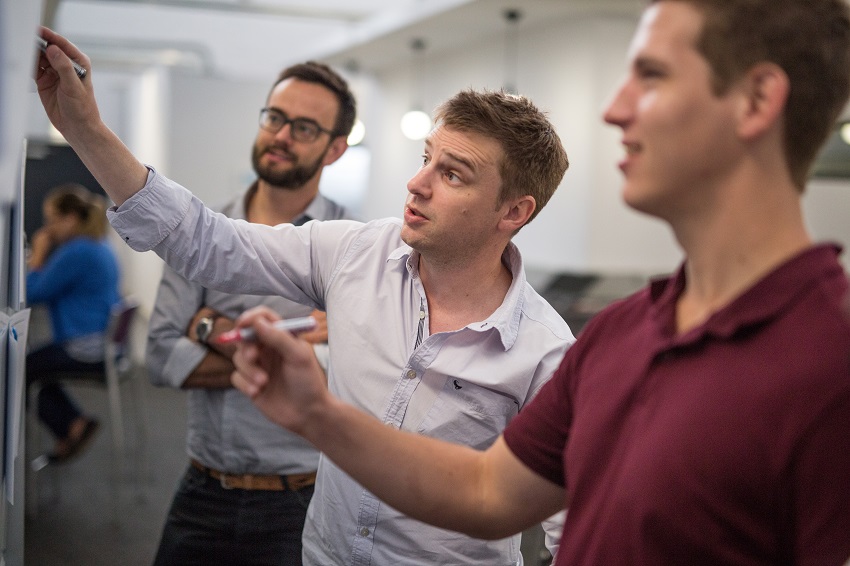The startup community is abuzz with the impact and power of mentors. But the word gets used too frequently in a variety of ways, but never truly gets defined for its purpose, writes JD Nel, portfolio manager at Stellenbosch University incubator the LaunchLab.
At the LaunchLab we have been incorporating mentorship from the beginning of our journey, and we have discovered that mentors are invaluable, but not like you might think.
Here’s a bit of a quick historical recap of mentorship. Back in the day when Greek mythology was all the rage, there was a king named Odysseus. As many of you might know, he became quite bored and decided to go on a nice trip (aka an odyssey).
When one goes on such a journey, you might have to get someone that can look after your son. That is exactly what the king did. Odysseus asked his good friend, Mentor, to take care of his son, Telemachus, when he left for the Trojan war.
In this short tale lies some valuable insight regarding the nature of mentorship:
- A mentor plays an important role and position of authority in someone’s (mentee) life.
- There is a clear power relationship.
- The mentee needs the mentor because there is potentially a lack of knowledge and understanding.
- It is potentially a relationship that lasts a long time because the mentee needs many years and experiences in which the learning can be passed from the mentor to the mentee.
- There is a general understanding that the mentor can help the mentee navigate life because the mentor has already gained the experience and can recognise in which stage of life or progress the mentee is.
- The mentor should be very aware that their influence has a great impact and that they have an altruistic fiduciary responsibility as their efforts should not be self-serving but focus on the potential of the mentee. They are custodians of a learning process.
The right thing at the right time
At the heart of any incubation process is understanding the different stages entrepreneurs find themselves in. There is a need for a different approach depending on the level the entrepreneur is in.
A novice – someone just starting out – needs instruction, basic information such as “what”, “how”, “where”, “when”, and “why”. An apprentice – someone in training – needs development mentorship – practice and evaluation.
A journeyman – someone who is able to work on their own – needs coaching and feedback, while a master – someone who is able to teach others – needs commissioning, essentially affirmation and autonomy.
The best way to illustrate this is by giving you an example.
The curious case of the Indomitable Hertzy
A few years back the LaunchLab was privileged to meet with Hertzy Kabeya. He approached the LaunchLab to assist with his startup that was selling second-hand books to university students. He was partnering with a similar business at the time and they were showing promise.
Although he was very excited about the prospects of his business, Hertzy felt that he was not making the progress that he needed in order to accomplish his goals. He had many ideas and dreams of moving his emerging enterprise from a second-hand book retailer to a thriving online platform that enables struggling students with resources to improve their marks and also become more well-rounded individuals.
The LaunchLab provided him with a mentor that was aware of the different learning stages and could assess the kind of help that he required. The mentor identified that Hertzy was functioning somewhere between an apprentice in certain areas and as a journeyman in others – things are never as simple as the theory makes it out to be.
Accordingly, his mentor sat down and used a coaching approach of listening, asking questions and then enabling the coachee (Hertzy) to set his own goals and remain true to them. At the same time the mentor also helped Hertzy interpret his current season, partner relationship and strategic landscape from the experience that the mentor had.
It was therefore a combination of telling and asking in order to practice, evaluate, assign and encourage. Hertzy showed a strong ability to work on his own and it was therefore easy for the mentor to step back a bit more and focus on the stage of coaching/feedback, rather than development.
Hertzy was able to make the transition encouraged by his mentor. He already had the right stuff, but the mentor helped him see clearly and activate inner motivation because of greater certainty.
What’s the moral of the story?
Well, the moral of the story should be whatever the story is telling you about where you are right now in terms of your journey. Be honest with yourself and recognise that no great entrepreneur can go at it without help. The commander on the field always has a general to turn to. Who do you have?


